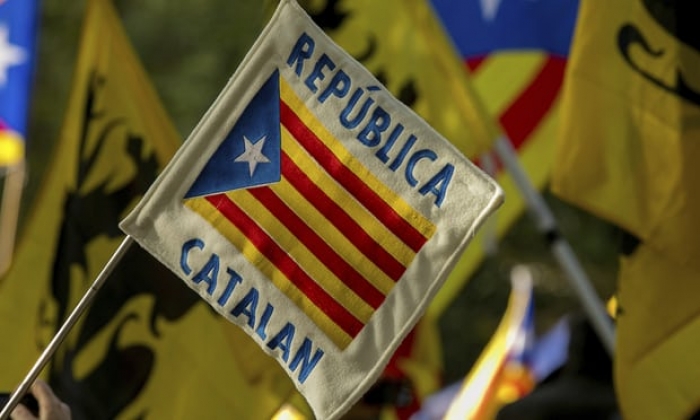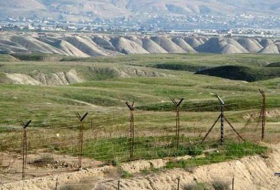“If the Catalans ask for a fiscal pact, we are ready to discuss this,” one senior source said. “The Basque country [in northern Spain] and Navarre collect their own taxes. They have their own system and there is a meeting between the Basque country and the central government and they decide how much they contribute to foreign policy and defence. It‘s a negotiation. Every five years.
“We are open to discuss this, taking into account that the constitution of Spain also establishes solidarity [among the Spanish regions].”
A fiscal pact was proposed in 2012 by Catalonia’s then president, Artur Mas, but the Spanish government blocked the move over concerns that it would be destabilising at a time when Spain appeared to be in dire economic peril.
A cross-party commission on potential constitutional reform opened discussions last week on a new settlement between the Catalans and the Spanish government, with the support of the prime minister, Mariano Rajoy.
Madrid has consistently taken a tough line with the Catalan secessionists since the crisis exploded in recent months, culminating in the referendum on 1 October and the Catalan government’s unilateral declaration of independence on 27 October. Rajoy responded by stepping in to take control of the region and sacking the Catalan regional government.
Eight former Catalan ministers were taken into custody pending investigations by Spain’s top criminal court, the Audiencia Nacional. The deposed Catalan president, Carles Puigdemont, who fled with four ministers to Brussels this month, is awaiting a court hearing over a European arrest warrant issued on charges of rebellion, sedition and the misuse of public funds.
Spanish government sources insist that the establishment of parliamentary commission on constitutional reform is a genuine attempt to move on from the dispute. Fresh elections have been called for the Catalan parliament.
The Spanish government intends to lift article 155 of the Spanish constitution, by which it imposed direct rule on the region, once a new regional government is formed committed to ruling in accordance with the constitution.
“When there is a government, and this government stays behind the framework of the constitutional order, we will drop 155. As soon as there is a government, whoever the government is,” a source said.
A change to the constitution to allow Catalans greater say over their finances would require a referendum, and the Spanish government has stressed that the wealthy region would not be able to turn its back on the rest of the country in any new arrangement.
“This government will not go into a fiscal agreement only with one region. This has got be a full package,” said one source. “We are ready to talk about the financial responsibility of the whole of Spain and we can talk with the regions but we will have to take into account that 17 regions play a role, and solidarity is a keystone of our constitution.”
In polling for the Catalan elections called by Rajoy for 21 December, pro-independence parties are marginally in front with a projected 1.974 million votes to the 1.966m for the unionist parties, Ciudadanos, the Catalan Socialist party and the PP.
Puidgemont’s Catalan European Democratic party (PDeCat) and the Catalan Republican Left party (ERC) ran on a joint ticket last time. The government suspects the secessionist parties would struggle to form an administration this time. The far-left, anti-capitalist Popular Unity Candidacy (CUP) has branded the elections “imposed and illegitimate” but has decided to participate.
A Spanish government insider said: “The feelings of the government is that the polls show there may be a surprise in the elections. I am sure we will not have a result as in the last election when you could say 48% was on independence side, with 53% of the seats. I am not sure this is going to happen now as the independence supporters do not go into the same [party] list. They will find a lot of difficulties to form a government and they will challenge each other.”
Moves to renegotiate Catalonia’s relationship with the rest of Spain have often been fraught. Many Catalans are still angry over the role that Rajoy’s conservative People’s party played in hobbling the 2006 Catalan statute of autonomy, which would have given the region greater independence.
In 2010, the PP successfully lobbied the constitutional court to annul or reinterpret parts of the statute, thereby ensuring that Catalonia was not recognised as a nation within Spain and the Catalan language was not given precedence over Castilian.
More about: #Spain #Catalonia















































